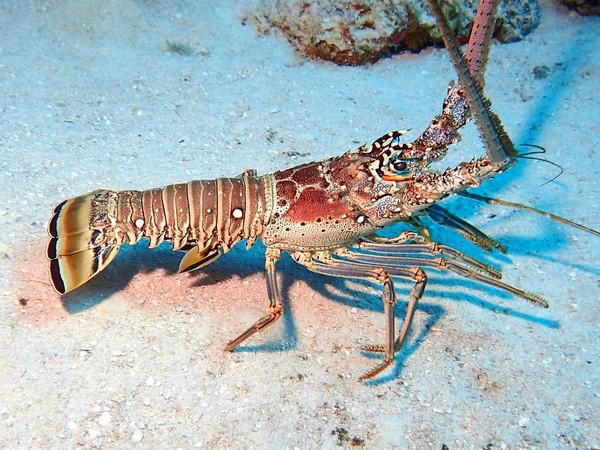Warming waters, local differences affect lobster population: Study
Recent studies reveal that increasing temperature of the ocean and local differences probably is the reason for falling lobster populations along the coast from southern New England to Atlantic Canada.

- Country:
- United States
Recent studies reveal that increasing temperature of the ocean and local differences probably is the reason for falling lobster populations along the coast from southern New England to Atlantic Canada. One of the papers, published in the scientific journal -- Ecological Applications, -- was led by Noah Oppenheim, who completed his research as a UMaine graduate student in 2016, with co-authors Richard Wahle, Damian Brady and Andrew Goode from UMaine's School of Marine Sciences, and Andrew Pershing from the Gulf of Maine Research Institute.
They report that the numbers of young-of-year lobsters populating shallow coastal nursery habitats each year, and temperature, provide a reasonably accurate prediction of trends in the lobster fishery some four to six years later. Their model predicted regional differences in the recent record-breaking boom over the past decade and now suggests the Gulf of Maine lobster fishery may be entering a period of decline; in effect a "cresting wave" of lobster abundance that may be heading northward in the region's changing climate.
"Our model projects that the Gulf of Maine's lobster landings will return to previous historical levels," said Oppenheim, who is now executive director of the Pacific Coast Federation of Fishermen's Associations and the Institute for Fisheries Resources in San Francisco. "These results don't suggest a lobster crash, but this tool could give the fishing industry and policymakers additional lead time as they make decisions about their businesses and communities in the years ahead," added Oppenheim.
"We recommend that the stock assessment community and fishery managers use this information in concert with other indicators of the health of the fishery, as an independent early warning system," continued Oppenheim. The second article, led by current UMaine marine science Ph.D. student Andrew Goode, underscores the importance of local differences in the oceanography of the Gulf of Maine for understanding where the lobster boom occurred.
"We suggest that this increase resulted from a complex interplay between lobster larval settlement behaviour, climate change, and local oceanographic conditions," wrote Goode and his co-authors in their paper published in the journal -- Global Change Biology. The paper was co-authored by Brady, Wahle and Robert Steneck, all of the School of Marine Sciences.
Goode and his collaborators observed that an expanded area of thermally suitable habitat for larval settlement in the eastern Gulf of Maine may have helped drive and amplify the lobster boom in the region over the last decade -- a boom that elevated the fishery to its current status as the most valuable single-species fishery in the nation. This cooler deepwater habitat may provide refuge for juvenile lobster from the negative impacts of ocean warming and buffer the Maine lobster fishery from similar declines as observed in southern New England.
While the paper points to a "brighter side of climate change" in this case, it does not deny the adverse effects of a warming ocean south of Cape Cod for other species. At the centre of these studies is the American Lobster Settlement Index (ALSI), a long-standing shallow-water monitoring study serving as an important indicator of the strength of new lobster year classes repopulating coastal nursery habitats each year.
The survey generating the annual index was founded in 1989 by Wahle, a UMaine research professor, director of the Lobster Institute, and co-author of both studies. (ANI)
(This story has not been edited by Devdiscourse staff and is auto-generated from a syndicated feed.)
ALSO READ
SFJ Ban Extended: Tribunal Upholds Centre's Decision
Tragic Blaze at Dallas Shopping Centre Claims Lives of Hundreds of Animals
Punjab Minister Urges Centre to Break Farmer Stalemate
Centre has given over Rs 75,000 crore for Delhi. We want Delhi to be city displaying grand form of India's heritage: PM at rally.
Projects launched by PM joint venture between Delhi govt, Centre; reflects AAP's commitment to city's development: Kejriwal.










